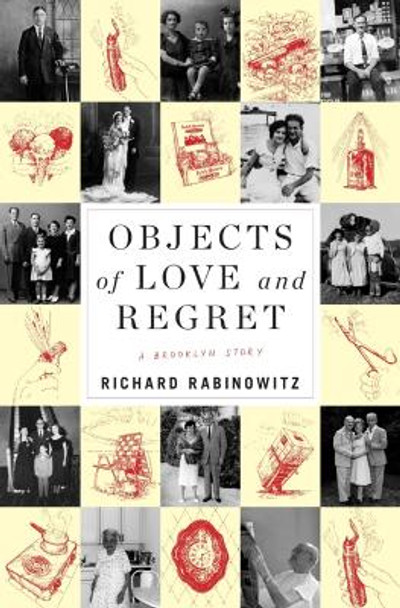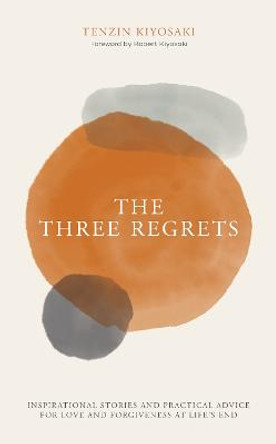Description
An award-winning historian and museum curator tells the story of his Jewish immigrant family by lovingly reconstructing its dramatic encounters with the memory-filled objects of ordinary life.
At a pushcart stall in East New York, Brooklyn, in the spring of 1934, eighteen-year-old Sarah Schwartz bought her mother, Shenka, a green, wooden-handled bottle opener. Decades later, Sarah would tear up telling her son Richard, "Your bubbe always worked so hard. Twenty cents, it cost me."
How could that unremarkable item, and others like it, reveal the untold history of a Jewish immigrant family, their chances and their choices over the course of an eventful century? By unearthing the personal meaning and historical significance of simple everyday objects, Richard Rabinowitz offers an intimate portrait connecting Sarah, Shenka, and the rest of his family to the twentieth-century transformations of American life. During the Depression, Sarah-born on a Polish battlefield in World War I, scarred by pogroms, pressed too early into adult responsibilities-receives a gift of French perfume, her fiance Dave's response to the stigma of poverty. Later we watch Dave load folding chairs into his car for a state-park outing, signaling both the postwar detachment from city life and his own escape from failures to be a good "provider" for those he loves.
Objects of Love and Regret is closely wedded to the lives of American Jewish immigrants and their children, yet Rabinowitz invites all of us to contemplate the material world that anchors our own memories. Beautifully written, absorbing, and emotionally vivid, this is a memoir that brings us back to the striving, the dreams, the successes, and the tragedies that are part of every family's story.
About the Author
Richard Rabinowitz, a noted historian and museum curator, is the president of American History Workshop. For decades, he has been instrumental in developing new museums and creating lively exhibitions across the nation, including the Lower East Side Tenement Museum, the Birmingham Civil Rights Institute, the National Underground Railroad Freedom Center, and the New-York Historical Society. He is the author of The Spiritual Self in Everyday Life: The Transformation of Personal Religious Experience in Nineteenth-Century New England and Curating America: Journeys through Storyscapes of the American Past. Among his many honors are a Guggenheim Fellowship and the American Historical Association's Herbert Feis Award for distinguished contributions to public history.
Reviews
Could the flood of memories that for Proust became Remembrance of Things Past have been stirred not by the taste of a tea-soaked petite madeleine-but instead, as in historian Richard Rabinowitz's deeply moving family memoir, Objects of Love and Regret: A Brooklyn Story, by the accidental discovery of a nearly century-old wooden-handled bottle opener?...His tenderly detailed evocation of times that are no more remind us that we, too, have the tools to pry open the past and revive what we thought we had forgotten. -- Diane Cole * Washington Post *
Rabinowitz is artful in drawing out the memories and meanings they elicit. Perhaps even more valuable is his encouragement to the rest of us to examine our material world, and to follow his lead. -- Julia M. Klein * Forward *
It's a fascinating read; distinct from books about extraordinary immigrant dynasties like Hadley Freeman's House of Glass. But that's what makes it captivating. It could be my family, or yours, one of thousands and thousands of similar stories that make up the tapestry of diaspora history. * Jewish Chronicle *
[Rabinowitz] uses ordinary objects to tell extraordinarily meaningful stories on the complex forces and psychological consequences of history, trauma, economics, cultural values, and societal norms that profoundly shaped his family over the 20th century...Timeless. * Enchanted Prose *
Rabinowitz has a poetic approach to viewing the past...[This book] serves as a way for readers-particularly young readers who never knew this generation-to understand the choices they made, and how those choices still affect their children and grandchildren. -- Rachel Esserman * The Reporter *
The tale of a bottle opener found in a kitchen drawer opens worlds of domestic, immigrant, family, and economic history. This is a book about how the past lives in us, even as we resist it or are unaware of it. Rabinowitz is a storyteller of rare verve and insight, offering us delight, discovery, and an honest account of joy and pain. -- David W. Blight, Pulitzer Prize-winning author of Frederick Douglass: Prophet of Freedom
Too many memoirs only look inward. The wiser memoirists realize that your life is about the you who observes and embraces the world. In Objects of Love and Regret, Rabinowitz is a historian of the heart who uses ordinary objects to tell the story of his family. Fittingly, he begins with a bottle opener purchased by his mother, which becomes his instrument for opening everything as only he can. This scrupulous, meditative writer generously gives us lives that matter. -- Roger Rosenblatt, author of Making Toast: A Family Story
I can't praise this marvelous book enough. Poignant and moving, it is at once a personal tribute and a work of history. Rabinowitz creates meaning through everyday objects that illuminate the inner life of a single family and the culture that surrounds it. It is one of the most interesting and original books I have read on American Jews and the city of New York. -- Tony Michels, author of A Fire in Their Hearts: Yiddish Socialists in New York
Objects of Love and Regret welcomes us, outsiders, to the inner life of an Eastern European Jewish family in New York. A work of serious historical detection, it drives home an important point. History need not be about strangers, but can just as powerfully be about those who raised us but whose stories we actually never knew. Everything triggers historical inquiry, even an ordinary bottle opener. -- Hasia R. Diner, author of The Jews of the United States, 1654 to 2000
Rabinowitz recognizes how the extraordinary lurks in the ordinary, and in this imaginative and eloquent book he musters common domestic objects in the lives of his Eastern European Jewish immigrant family to tell a story that, while it does not contain all of America, contains an important and powerful part of it. -- Richard White, author of The Republic for Which It Stands: The United States during Reconstruction and the Gilded Age, 1865-1896
Book Information
ISBN 9780674268593
Author Richard Rabinowitz
Format Hardback
Page Count 352
Imprint Harvard University Press
Publisher Harvard University Press





